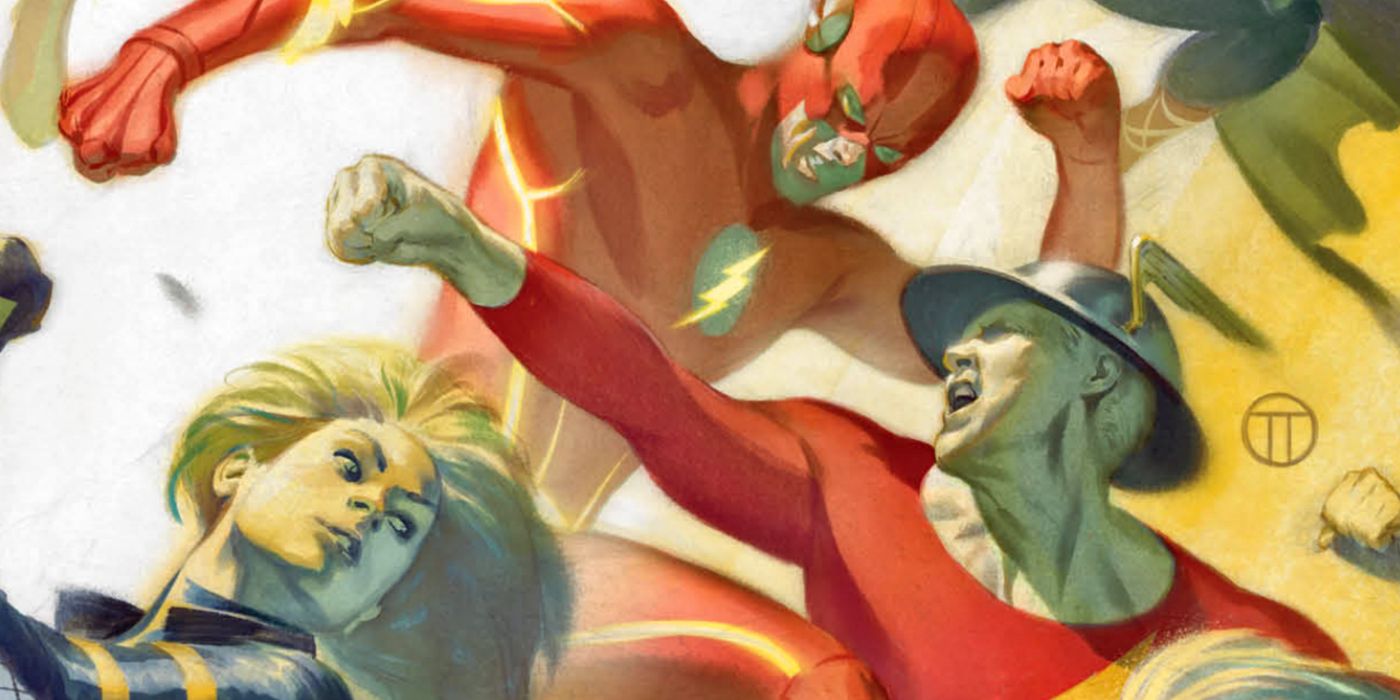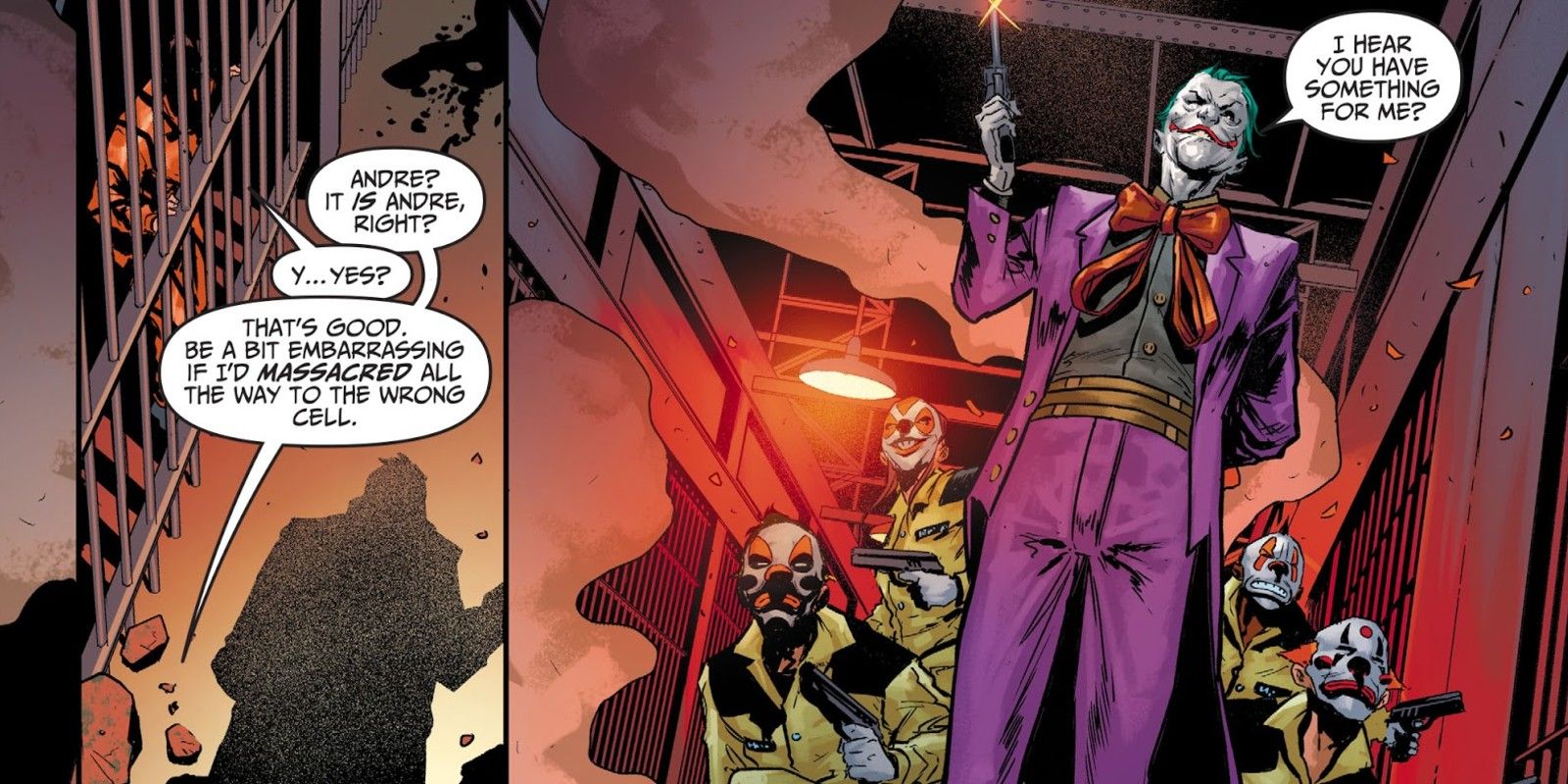WARNING: The following contains spoilers for Injustice: Year Zero #1-3, by Tom Taylor, Roge Antonio, Cian Tormey, Rain Beredo, and Wes Abbott, available now.
The alternate future of DC's Injustice Universe gets an alternate history during the first three issues of Injustice: Year Zero. The new digital series introduces this universe's Justice Society of America, a group of heroes noticeably absent from the previous Injustice books. This series promises to explain their disappearance, as well as shed a little light on what caused the timeline's divergence from the regular DC Universe timeline in the first place, specifically with regards to the Joker's interest in Superman.
In the Injustice universe that began with the video game Injustice: Gods Among Us, Superman has established a totalitarian regime in the wake of his family's death at the hands of the Joker. The video game and its sequel, Injustice 2, are set in this already-established world, and the comics explain how this dark world came to pass by exploring the rise of Superman's Regime and the deaths of numerous fan-favorite characters.
And now, Injustice: Year Zero #1 kicks off by focusing on an obscure character from DC history, Andre Chavard.
These first three issues focus on Andre Chavard, a deep-cut character from the DC Universe. Chavard was a member of the Boy Commandos, a World War II-era collection of orphans who fought the Axis forces. Created by Joe Simon and Jack Kirby after their success with Marvel's Captain America, those young soldiers embodied two popular trends at the time: comics that addressed the war and young sidekicks banding together.
The Boy Commandos fought against mainly "regular" people or criminals, with the occasional battle against supervillains. The team was an international collection of heroes, drawn from the assorted countries that constituted the Allies, and Chavard was the representative of France. As the war in the real world ended, so did interest in the Boy Commandos, until adult versions of the characters were reintroduced in the 1980s. Chavard is shown to be head of the French Secret Service's Department Gamma, though not much has been seen of him or the other Boy Commands since.
In Injustice, Chavard is in prison and apparently has been for quite some time. While his crime is never mentioned, we see him being concerned about a fellow prisoner's ability to read, which indicates he is still egalitarian to some degree. However, Chavard learns he's ineligible for parole, despite the fact that he has mere months to live. That pushes him to solicit help from his fellow prisoner, and he reaches out and makes contact with the Joker.
The Joker busts Chavard out of prison because the two have made a deal. In exchange for the opportunity to see his grandson, Chavard promises Joker the power of a god. Actually, it's the power to control a god, and that power comes as a result of wielding the Amulet of Apophis. That was ancient relic was unearthed by Hawkman and Hawkgirl in their civilian identities decades ago, and it was re-discovered by a soldier. The amulet seemingly has the power to compel people to do whatever they're told.
We can assume that Chavard knows the location of the amulet. With it, someone could control Superman, the Justice League or the Justice Society, and they could essentially have the power of a god at their disposal. Needless to say, turning over such a trinket to the Joker would be a very bad idea.
The issues never reveal why Chavard is in prison, nor have they gotten beyond the reveal of the amulet's existence. While it's possible that Chavard came across it as a Boy Commando, that tale has not yet been told. However, the very idea that Chavard's desperation to reconnect with family might somehow put the dark events of the Injustice universe into motion is the kind of heart-wrenching detail that could make the fall of Superman and his fellow heroes in Injustice even more tragic.


